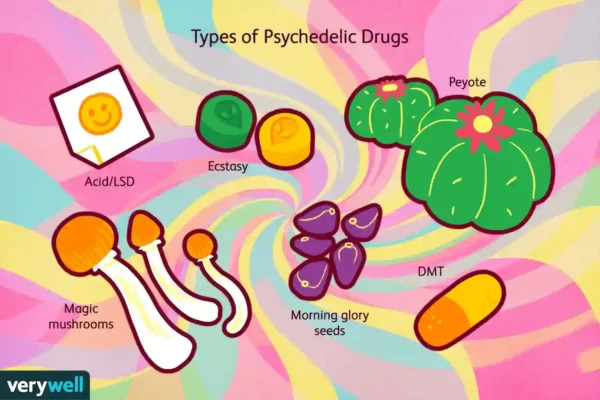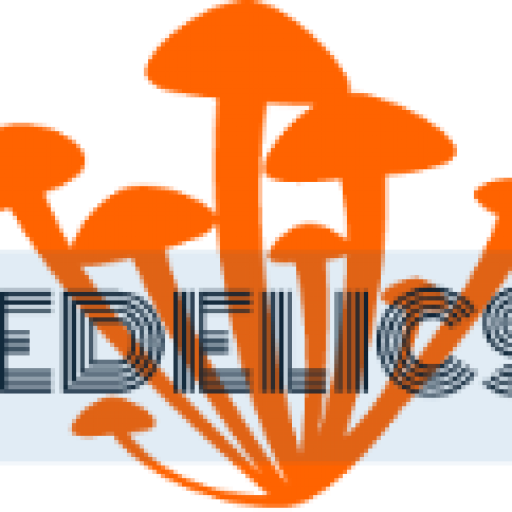Uncategorized
All Psychedelics: A Comprehensive Guide
Psychedelics are a class of drugs that alter perception, mood, and thought processes. They have been used for centuries for spiritual and healing purposes and are gaining popularity for their potential therapeutic benefits for mental health disorders. There are many different types of psychedelics, each with its unique effects and risks. In this blog post, we will provide a comprehensive guide to all psychedelics.
What are Psychedelics?
Psychedelics are a class of drugs that produce altered states of consciousness and can induce a range of sensory and emotional experiences. These substances are known to produce profound changes in mood, perception, and thought processes, often resulting in an altered sense of reality. The most well-known psychedelics include LSD, psilocybin, and DMT, but there are many other substances that also fall into this category.
Types of Psychedelics
There are many different types of psychedelics, each with its unique effects and risks. Here are some of the most well-known psychedelics:
LSD
LSD (lysergic acid diethylamide) is a synthetic psychedelic that was first synthesized in 1938. It is known for its powerful and long-lasting effects, which can last up to 12 hours. LSD is usually taken in the form of a small piece of paper, called a “tab,” that is placed on the tongue or dissolved in water.
Psilocybin
Psilocybin is the active ingredient in “magic” mushrooms and is a naturally occurring psychedelic. It produces effects that are similar to LSD, but the experience is often described as being more introspective and “mystical.” Psilocybin is usually taken orally in the form of dried mushrooms or brewed into a tea.
DMT
DMT (dimethyltryptamine) is a naturally occurring psychedelic that is found in many plants and animals. It produces a short-lived but extremely intense experience, often referred to as a “breakthrough” experience. DMT is usually smoked or vaporized, and the effects last for around 15-30 minutes.
Mescaline
Mescaline is a naturally occurring psychedelic that is found in the peyote cactus and some other plants. It produces a range of effects, including visual and auditory hallucinations, changes in perception, and altered thought processes. Mescaline is usually taken orally in the form of dried peyote buttons or brewed into a tea.
Ketamine
Ketamine is a dissociative psychedelic that produces a range of effects, including feelings of detachment from the body and altered perception of reality. It is commonly used as an anesthetic in medical settings but is also used recreationally for its psychedelic effects. Ketamine is usually taken intravenously or intramuscularly, but it can also be snorted or taken orally.
Salvia
Salvia divinorum is a plant that contains the psychoactive compound salvinorin A. It produces a range of effects, including visual and auditory hallucinations, changes in perception, and altered thought processes. Salvia is usually smoked or vaporized, and the effects last for around 10-15 minutes.
Risks and Side Effects
Psychedelics are powerful substances that can produce a range of effects, both positive and negative. While many people report profound and transformative experiences with these substances, there are also risks and side effects to consider. Here are some of the most common risks and side effects associated with psychedelics:
Bad trips
Bad trips are experiences that are characterized by feelings of anxiety, fear, and paranoia. They can be very intense and can last for several
hours, causing significant distress and potentially leading to long-term psychological effects.
Flashbacks
Flashbacks are spontaneous and unexpected recurrences of a previous psychedelic experience. These can occur weeks, months, or even years after the initial experience and can be triggered by various factors, such as stress, fatigue, or drug use.
Psychotic episodes
Psychedelics can sometimes trigger psychotic episodes in people who are predisposed to or have a history of mental health disorders. These episodes can be characterized by delusions, hallucinations, and other symptoms of psychosis.
Physical side effects
Psychedelics can produce a range of physical side effects, including dilated pupils, increased heart rate, and elevated blood pressure. Some substances, such as ketamine, can also produce nausea, vomiting, and dizziness.
Legal risks
Many psychedelics are illegal to possess, use, or distribute in most countries around the world. Possession or use of these substances can result in criminal charges and penalties.
Potential Therapeutic Benefits
Despite the risks and side effects associated with psychedelics, there is growing interest in their potential therapeutic benefits for mental health disorders. Research has shown that these substances may be effective in treating conditions such as depression, anxiety, and PTSD. Here are some of the potential therapeutic benefits of psychedelics:
Enhanced emotional processing
Psychedelics can produce a range of emotional experiences, including feelings of awe, empathy, and connectedness. These experiences may help individuals process difficult emotions and trauma in a therapeutic setting.
Increased neuroplasticity
Psychedelics have been shown to increase neuroplasticity, which is the brain’s ability to form new neural connections. This increased neuroplasticity may help individuals overcome patterns of negative thinking and behavior.
Improved mood and well-being
Research has shown that psychedelics can produce long-lasting improvements in mood and well-being. These effects may be due to the substances’ ability to increase serotonin levels in the brain, which is a neurotransmitter that regulates mood.

Psychedelic Research and Companies
There is growing interest in psychedelic research, and several companies have emerged that are focused on developing new therapies and treatments using these substances. Here are some of the companies that are leading the way in psychedelic research:
Compass Pathways
Compass Pathways is a biotech company that is focused on developing psilocybin-based therapies for mental health disorders, such as depression and anxiety. The company has conducted several clinical trials and is currently in the process of seeking FDA approval for its psilocybin therapy.
MindMed
MindMed is a biotech company that is focused on developing therapies and treatments using various psychedelics, including LSD and psilocybin. The company has several clinical trials underway and is also exploring the use of virtual reality in psychedelic therapy.
Field Trip Health
Field Trip Health is a company that is focused on providing psychedelic-assisted therapy in a clinical setting. The company offers ketamine-assisted therapy for depression and other mental health disorders and is also exploring the use of other psychedelics, such as psilocybin and DMT.
Cybin Inc.
Cybin Inc. is a biotech company that is focused on developing new treatments for mental health disorders using psychedelic substances, including psilocybin and ketamine. The company is currently conducting several clinical trials and has received funding from various sources, including the Canadian government.
Conclusion
Psychedelics are a complex and fascinating class of drugs that have been used for centuries for spiritual and healing purposes. While these substances are not without risks and side effects, they also have the potential to be powerful tools for treating mental health disorders. As research continues to explore the therapeutic potential of psychedelics, it is important to
approach these substances with caution and respect, and to only use them under the guidance of trained professionals in a safe and controlled environment.
As the field of psychedelic research continues to grow, it is likely that we will see more companies emerging with a focus on developing new treatments and therapies using these substances. It is important to continue studying the risks and benefits of psychedelics, and to explore how they can be used to help individuals struggling with mental health disorders.
Ultimately, the use of psychedelics should be approached with an open mind, but also with a healthy dose of skepticism and caution. While these substances have the potential to be powerful tools for healing and growth, they should be used responsibly and only under the guidance of trained professionals. With continued research and education, we can unlock the full potential of psychedelics and help those who are struggling with mental health disorders.



